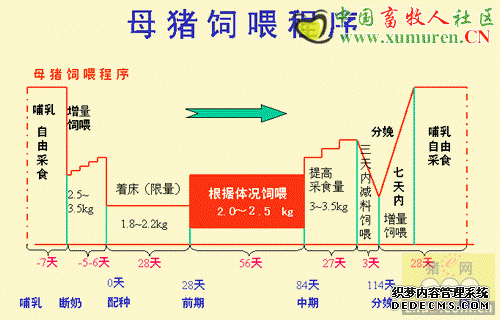By Dr. John T. Brake, North Carolina State University - Animal agriculture contributes more than 55 percent of the total annual agricultural income in North Carolina. The basis for all of animal agriculture is a dynamic feed milling industry, which provides the nutrients essential for animal growth and reproduction.
Introduction
Sustainability of animal agriculture depends on efficient feed utilization and minimization of environmental impact. The College of Agriculture and Life Sciences (CALS) at North Carolina State University has embarked upon a Feed Milling Education Initiative to support this key agricultural sector. This initiative is designed to develop well-educated men and women for leadership roles in the feed milling industry and to provide the underlying educational and research programs required to support a sustainable industry.
General Perspective
The CALS Feed Milling Education Initiative has four components: academic program, feed mill educational unit, feed milling center and capital campaign. It is being planned as an integral part of the environmentally sound "mini-integration" involving present animal and crop production units at the Lake Wheeler Road Field Laboratory in Raleigh and other facilities and programs within the College of Agriculture and Life Sciences. It will serve as a teaching model of good natural resource stewardship practices combined with efficient, integrated, and sustainable animal agriculture. It also will use NC State's relationship with the adjacent Wake County Ecological Park to better educate the general public about the compatibility of agriculture and the environment.
Development of an Academic Program in Feed Milling
Establishment of a new degree program within the University of North Carolina system is a difficult and lengthy process. A logical way to proceed is to first develop a minor that could be used by students to receive academic training and certification in the specific topical area of feed milling. Development of the minor required the identification of courses that were presently being taught that could be applied to the topical area. In the case of feed milling there were a number of courses available that had direct applicability. In addition, there has recently been developed a general survey course in feed milling that can serve as the initial core course. Collectively these courses will serve as the basic preparation for an actual feed milling work experience that can be structured within an External Learning Experience summer internship.
It is anticipated that a number of commercial feed mills will cooperate with CALS to provide these summer work experiences for our students. In the longer term, it is envisioned that interested feed milling enterprises may create full-time positions that can be filled on a rotating basis by co-op students. The minor was approved effective Fall Semester 2001. This action demonstrates the academic commitment to the CALS Feed Milling Education Initiative. The program will be jointly operated by the Departments of Animal Science, Biological and Agricultural Engineering, and Poultry Science.
The academic objectives of the inter-departmental minor in feed milling are: To acquire an understanding of the functions of a modern feed mill. To learn the procedures to assist in operating a modern feed mill. To learn to apply academic skills to the challenges of running a manufacturing facility.
One weakness of the minor approach is the relatively low number of credit hours required. However, a record of successful placement of graduates from the feed milling minor in jobs with feed milling enterprises at competitive salaries will provide the justification for an evolution in the direction of a feed milling "concentration" that will require a greater number of credit hours.
This will be equivalent to a major in terms of credit hours and will ensure that students are exposed to a more complete program. Further, at least two more courses in feed milling will be needed along with a revision of present courses to adequately cover required materials. This will require the addition of a new faculty member specifically educated in the feed milling area to provide leadership to the CALS Feed Milling Education Initiative. The scope of the responsibilities of the faculty position will depend on the feed mill facilities that can be developed. Industry support for this initiative would facilitate the timely development of this program and the hiring of this new faculty member.
声明
来源:互联网
本文地址:http://farm.00-net.com/yz/zhu/5/2007-09-20/142282.html








